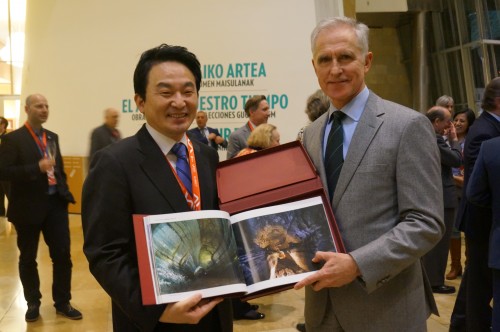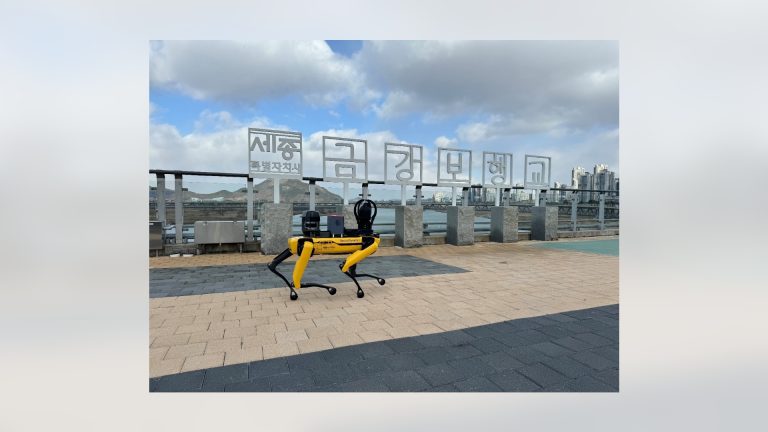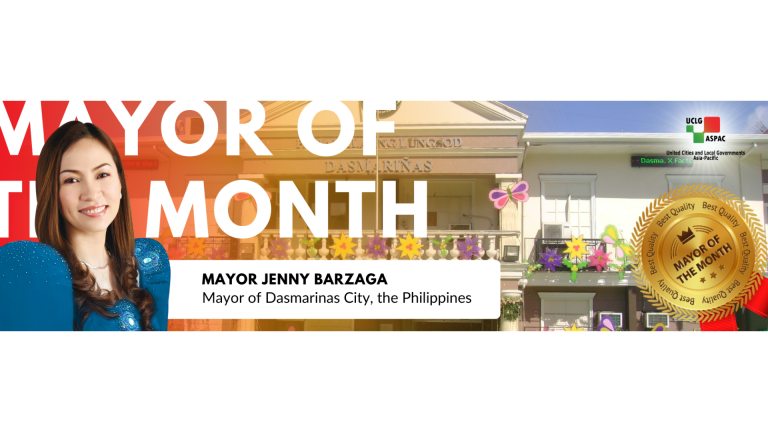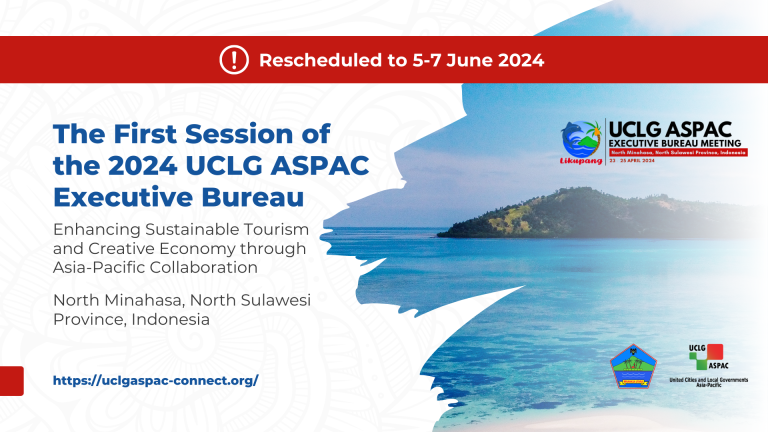ON 18 March 2015 in Bilbao of Spain and representing the United Cities and Local Governments Asia-Pacific, UCLG ASPAC President Won Hee-ryong had the opportunity to address the Bilbao Culture Summit which took place from 18-20 March 2015. His speech was delivered at the opening ceremony of the Summit which adopted the theme on Culture and Sustainable Cities, the first culture summit initiated by UCLG.
Mr. Won Hee-ryong is currently the Governor of Jeju Self Governing Province in the Republic of Korea.
First things first, he said, Bilbao is a special city for him as during the latest decades it has been major changes in this beautiful city in the northern part of Spain. Among others is the Guggenheim Museum which gained his attention while for the first time to visit this city. “It is to the credit of the people and government of Bilbao that somewhat a bleak industrial city was successfully transformed into a major tourist destination and internationally renowned for its refined culture,” he said.
Culture changes everything
Referring to Bilbao, UCLG ASPAC Pres. Governor Won Hee-ryong reaffirms his personal belief that culture and the arts have played an important part for the most significant changes to the landscape of Bilbao. It is clear, he adds, that the development of culture and sustainable cities is crucial to every human being.
Asia-Pacific region with its diverse culture, languages and civilization clearly reflects the great many ways of living in our society. “We see diversity as a valuable blessing, since differences in human societies lead to creativity, innovation and unique approaches to the challenges we face,” he said in his statement.
Despite immense challenges and with respect to diverse culture and civilization in the region, cities in Asia-Pacific has been strongly boosted by culture to revitalize local economies through a significant number of activities related to arts and heritage.
Artists and young entrepreneurs are engaged in local development, and their use of public spaces makes them more attractive.
The experience of Bilbao resonates this phenomenon. And that’s why, he says, “Culture is closely interrelated with human rights.”
Jeju’s best practices
As the Governor of Jeju Self Governing Province in the Republic of Korea, Won Hee-ryong has hands-on experience on how to explain about best practices in promoting inclusiveness and human rights, by making culture the foundation of our governing policies.
The diversity of cultural activities distinguishes each city, giving each one a unique color and particular atmosphere, resulting in an invaluable local identity. Culture has stood at the heart of the policies of the government of Jeju Province since he took office last July 2014 when action plan was released presenting the slogan ‘Advancing the Value of Nature, Culture, and People.’ And in this context, he said, “I am pleased to share what Jeju Province does for culture and sustainability.”
First, culture is the bridge between tradition and the future. When young people in Jeju leave the island for work and the elderly become less active, villages lost their vitality. A solution was exercised when public facilities were transformed into art spaces. “This policy has attracted many young artists and immigrants seeking agricultural work to Jeju,” he said.
These agricultural villages now produce their own culture through collaborative works of art.
Second, culture is at the root of creativity. Jeju authority has renovated old and unused buildings and transformed them into special places where cultural activities could be performed. New designs for storefront signs, small-scale movie showings, and literature activities initiated by local residents now draw interest from neighboring towns. “The projects jointly run by private and public organizations have had a positive effect on nearby markets by attracting more tourists,” he adds.
Third, culture is the oxygen of life.
Capitalism generates culturally marginalized people. Based on the fact that cultural activity is a necessity of life, we are issuing a cultural voucher to such individuals every year. About 2% of the total population of Jeju is being provided more opportunities to get voluntarily involved in cultural activities, which is superior to the opportunity for mere participation that is given by local governments. All the spaces are also used for education and communication in those villages and towns.
“I firmly believe that the high quality of life of that the people of Jeju are producing through cultural activities will lead to the further development of Jeju’s economy and will help to increase the number of visitors to the province,” he affirms.
It’s the whole parties’ responsibility to put the Summit’s recommendations into action and to shape the development of our New Urban Agenda. “I assure you that I, together with my esteemed partners at UCLG ASPAC, shall join hand-in-hand with you in making culture a key element of our public policies and a significant pillar of sustainability,” he concludes.
Photo credit: Agenda 21 for Culture











